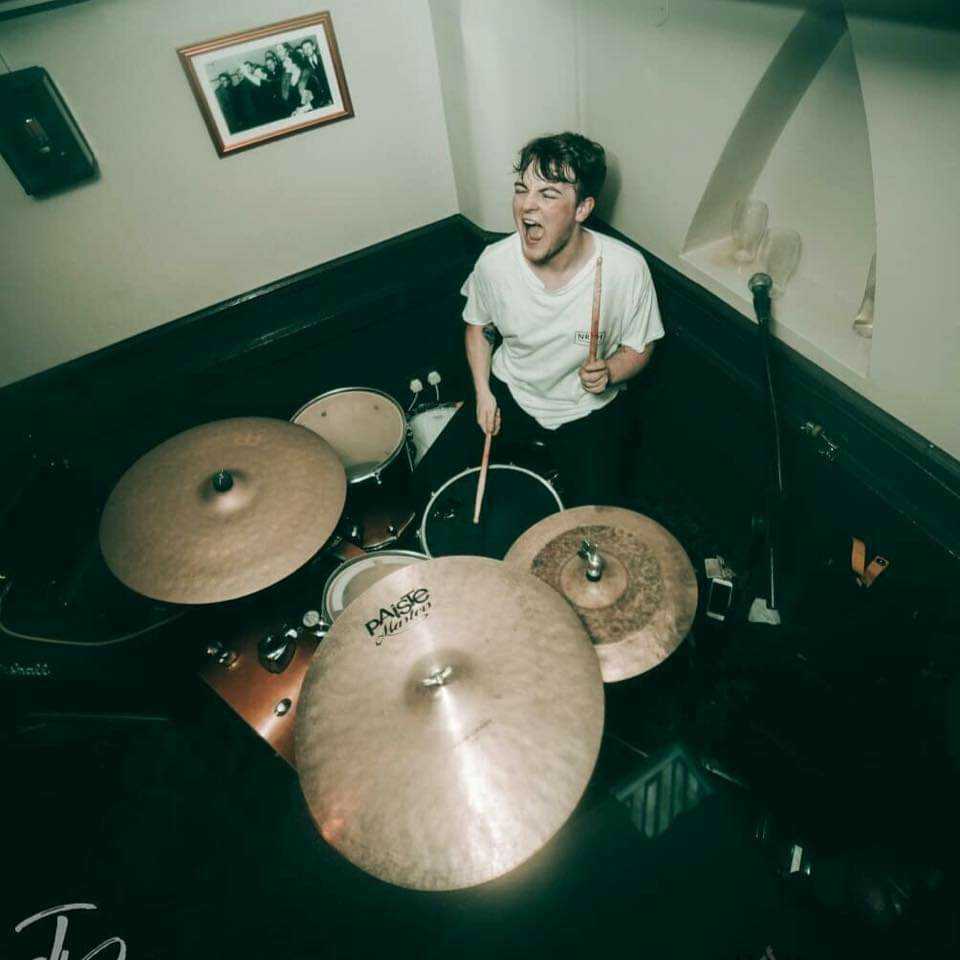Squier Bullet vs Affinity: Which one is right for you?
We compare two killer budget guitar ranges from Squier to help you spend your hard-earned cash wisely
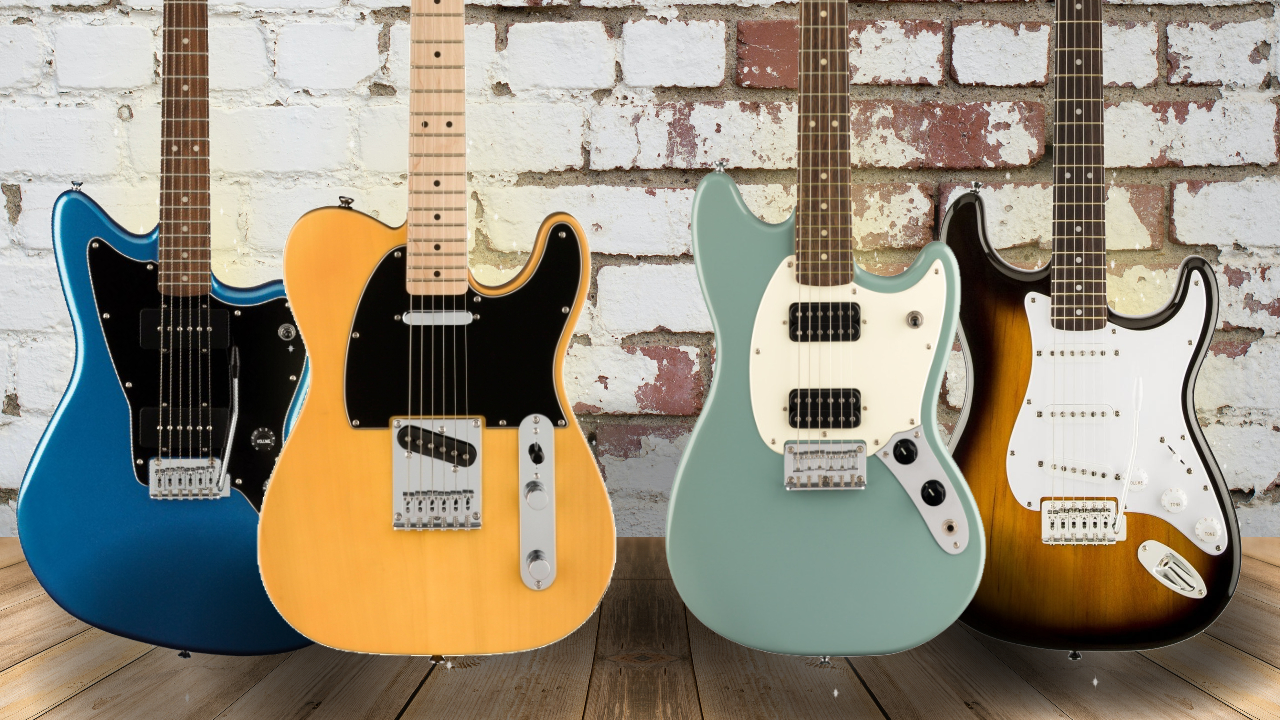
Squier has a strong and well-deserved reputation as one of – if not the – best budget electric guitar guitar brands in the world, and with a product series fitting every major ‘budget-friendly’ price bracket, it’s not hard to see why. As a sub-brand of Fender, Squier is able to faithfully recreate some of the most iconic guitars at impressively low prices and without an impending lawsuit – meaning that all of your hard earned cash is going into something that looks as good as it sounds.
The budget guitar market is frankly huge, if we're being honest. Squier is just one of a massive number of brands that are producing cheap electric guitars, so the amount of choice you've got can be pretty overwhelming at times. Thankfully, the sheer amount of competition means that Squier has been constantly upping its game – and we think that it's the best brand to buy a budget guitar from.
So much so that we're disregarding the other brands for now, and comparing two product ranges from Squier – Bullet and Affinity – to see which is best for you. We'll be pitting Squier Bullet vs Affinity in a number of categories, from features and tones to build quality and design, and coming to a verdict about how either of them fare.
While the two ranges do sit at slightly different price points, they're both aimed at the same area of the market – so either way, we think you'll be happy with whichever one you choose.
Squier Bullet vs Affinity: At a glance
Squier Bullet
- Guitars in the range: 4x Stratocasters (Standard, HSS Standard, Hardtail & HSS hardtail), 1x Telecaster, 1x Mustang HH
- Price range: $199/£149-£169
- Origin: China/Indonesia
- Body: Poplar
- Neck: Maple
- Find out more: Fender
Squier Affinity
- Guitars in the range: 4x Stratocasters (Standard, HSS, HH & FMT HSS), 2x Telecasters (Standard & Deluxe), 1x Jazzmaster, 1x Starcaster
- Price range: $259-$309/£229-£279
- Origin: China/Indonesia
- Body: Poplar
- Neck: Maple
- Find out more: Fender
Squier Bullet vs Affinity: A quick history
Squier began making budget versions of Fender guitars in 1982 in Japan's iconic FujiGen factory. Up until then, Fender had been making its lower-priced guitars in California, but a combination of more affordable Japanese copies, cheaper labor and production costs inspired the move, in order to help Fender compete against brands such as Tokai and Fernandes.
After Squier's success in Japan, those aforementioned Japanese copies had begun flooding the European and US markets. After introducing Squier to the European market, Fender decided to import Squier guitars into the US in the mid-'80s, and it worked. Although some Japanese copies are still sought after, Squier took over as the number one budget option, and it's stayed that way ever since.
In 1997, the Affinity series came to be. It was Squier's first product range to be made in China, and it began with an Affinity Telecaster. We then saw a Strat in 2001, and since then, the products have kept coming. Some Affinity models, such as the Affinity Starcaster, are made in Indonesia now too.
Get The Pick Newsletter
All the latest guitar news, interviews, lessons, reviews, deals and more, direct to your inbox!
The Bullet series has been around since the very beginning of Squier's guitar making lifetime. First introduced in Japan in 1983, they provided a great budget point of entry into Fender-styled guitars. Since then, there's been more than 25 different guitars made within the 'Bullet' range, in four different countries – Japan, Korea, China and Indonesia.
Squier Bullet vs Affinity: Features
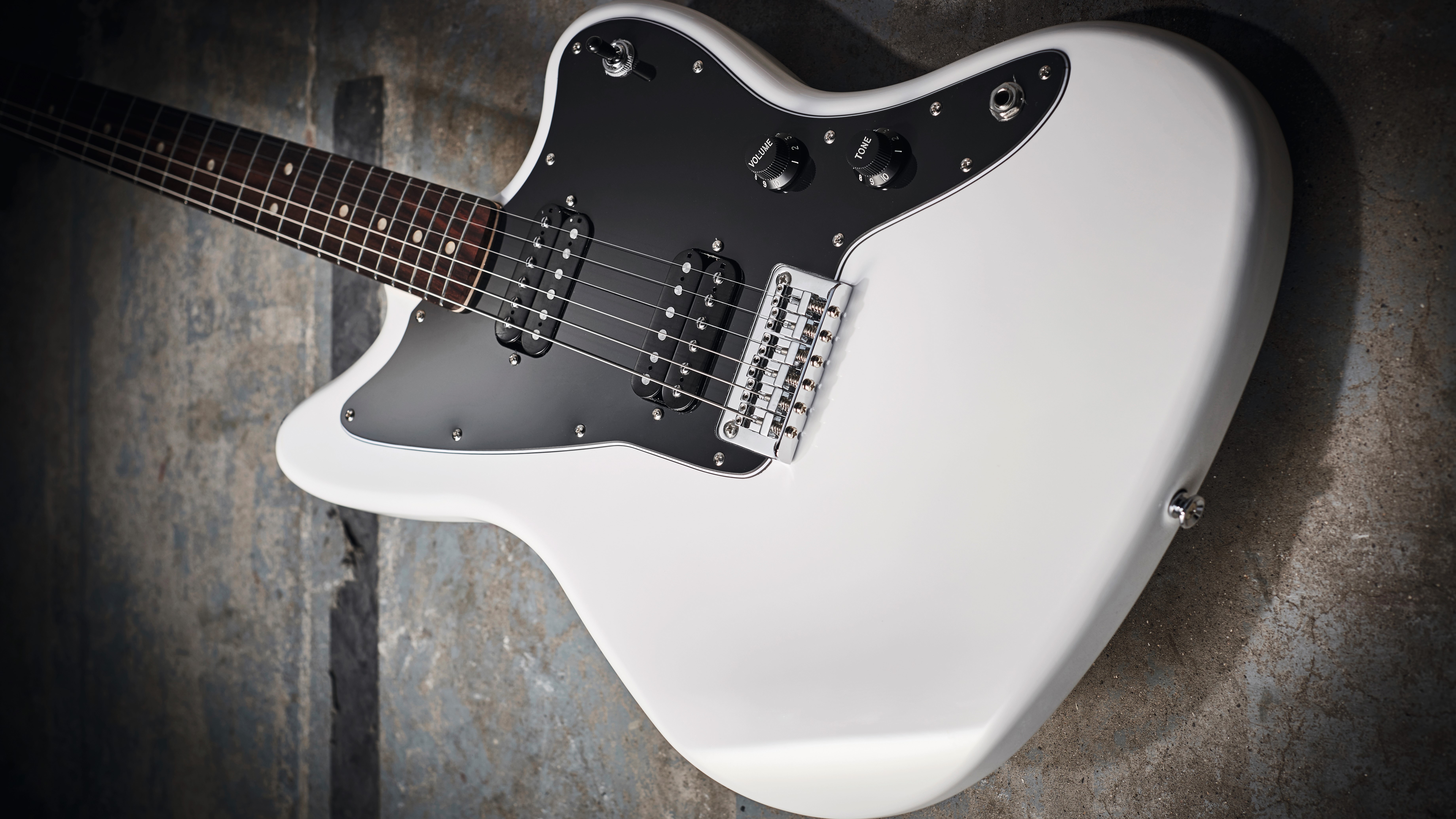
The features of the guitars within these ranges are pretty similar, all in all. If you're comparing the models which exist in both the Bullet and Affinity series', then the specs are pretty much the same.
Poplar bodies, maple necks and Indian Laurel fingerboards make up the main bulk of the features on both the Bullet and Affinity guitars. Whether the quality of the wood is better on the more expensive models, it's hard to tell – but the impact these materials have on the tone of these guitars is virtually identical. All of the necks are a bolt-on construction too – providing that iconic Fender-style 'snap' on a real budget.
All of the necks are a bolt-on construction too – providing that iconic Fender-style 'snap' on a real budget.
While the materials themselves are essentially the same, the body and neck thicknesses are adapted for the Bullet series. For this range of guitars, things have been slimmed down considerably and lightened as a result. Great if you're small, a beginner or just don't like heavy guitars, we suppose – but if you want a guitar with some extra guts behind it, as well as some extra sustain, then the Affinity range is the one for you.
The electronics and pickups also showcase a difference in spec between the Bullet and Affinity series'. While all of the Bullet range is equipped with a set of 'Standard' Squier pickups, the Affinity range is specced out with Ceramic electric guitar pickups, everywhere you look. Due to this fact, we'd say that while the Bullet range has the more 'classic' tone, the Affinity series has much more power and versatility behind it.
Verdict: If you like your guitars slim, lightweight, beginner friendly and sounding 'classic' then the Bullet range is where you should be looking. The materials are simple and low-cost, but what you get in return is impressive considering the price. That being said, we've got to give this round to the Affinity series. The guitars from this range are the most affordable 'full-fat' equivalent to the Strat, Tele, Jazzmaster and more, and with the ceramic pickups onboard, the versatility stakes are upped significantly.
Squier Bullet vs Affinity: Build quality
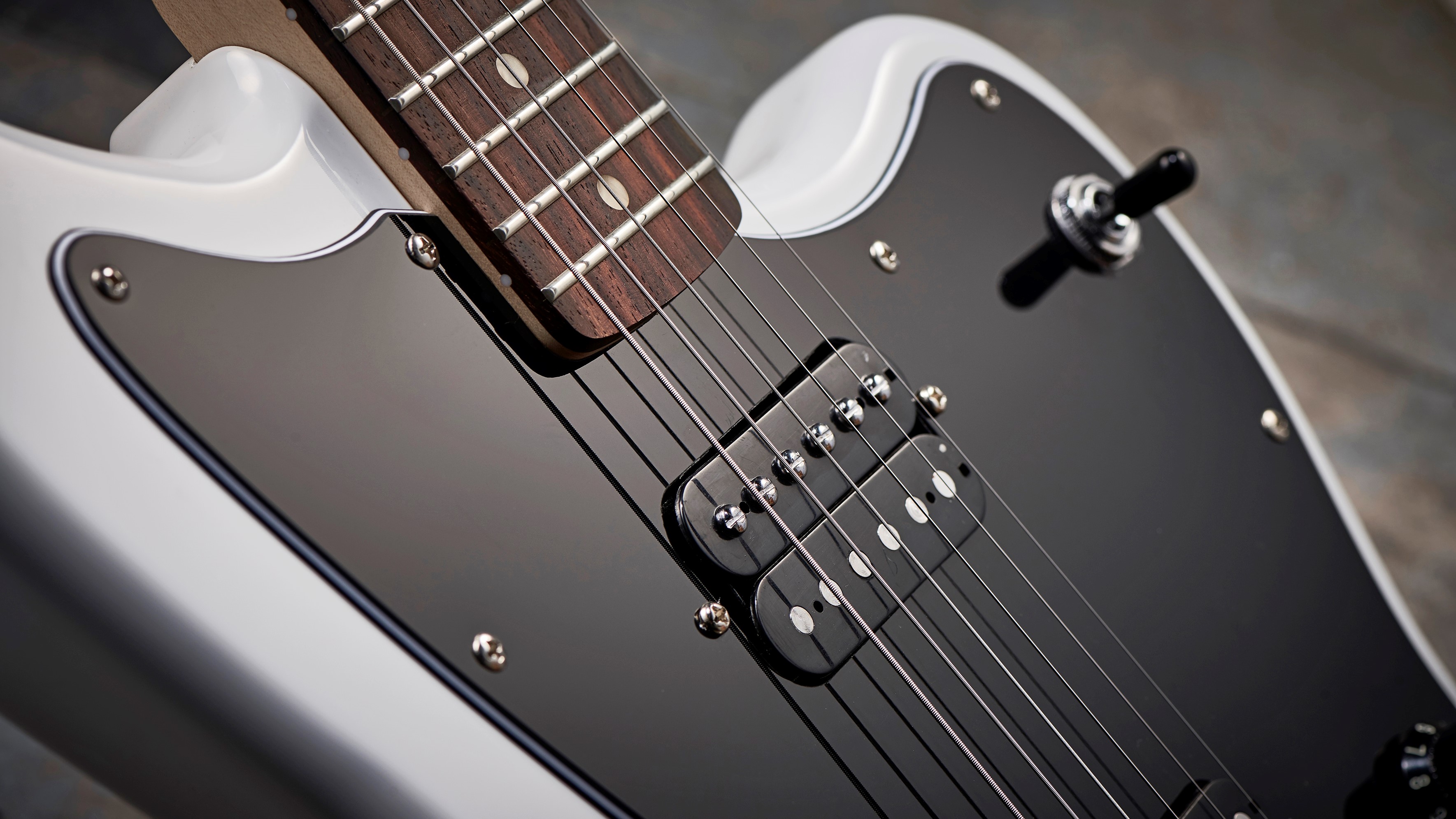
Now, build quality is probably the most important factor to focus on when comparing budget guitars. Build quality is the hardest thing to change or to fix on a guitar, and for that reason, making sure that it feels right and is put together properly is crucial.
Squier is a company which prides itself on its great build quality, and while there are better made guitars out there, very few of them are within the price bracket of the Affinity and Bullet ranges.
Overall, these guitars are made very very well. For this kind of money, we're expecting the basics to be done to a good standard – nothing else – and we were pleasantly surprised at how solid and well-made these ranges feel when playing them.
Overall, these guitars are made very very well. For this kind of money, we're expecting the basics to be done to a good standard – nothing else – and we were pleasantly surprised at how solid and well-made these ranges feel when playing them. Especially in the world of budget and beginner guitars, the only thing you need a guitar to be is easy to play – and both the Affinity and Bullet ranges provide an enjoyable and easy playing experience. We would argue, though, that the smaller, thinner bodies and necks on the Bullet series makes the guitars feel a little more flimsy and easy to break in adult hands. The quality of the fit, however, is still great.
The hardware is solid on both options, the pickups (although different) all sound perfectly good, and there isn't any sharp fret edges, sharp saddles sawing through strings or splintery spots on the body or neck. The actual finishes of the guitars – the paintwork and lacquering etc – are both decent, although the Affinity series is preferred by us due to the number of colors and other options that are available to the player. We also found that the finishes had no visible flaws or inconsistencies, whereas some Bullet models we've had our hands on have been wildly inconsistent when it comes to color.
Overall, the build quality is completely neck and neck. With both ranges of guitar being made from exactly the same materials, constructed in the same way and probably in the same factory, by the same people – we'd go as far as to say it's only really the level of finish and the Bullet body size and weight that separates the two series'.
Verdict: Well, you can probably guess that we're going to choose the Affinity series again. Honestly, from our point of view the Affinity series was just a bit more solid and gig-ready, whereas the Bullet range – although very well made too – felt a little bit more flimsy, fragile and just generally a bit cheaper. It is cheaper though, to be fair.
Squier Bullet vs Affinity: Sounds
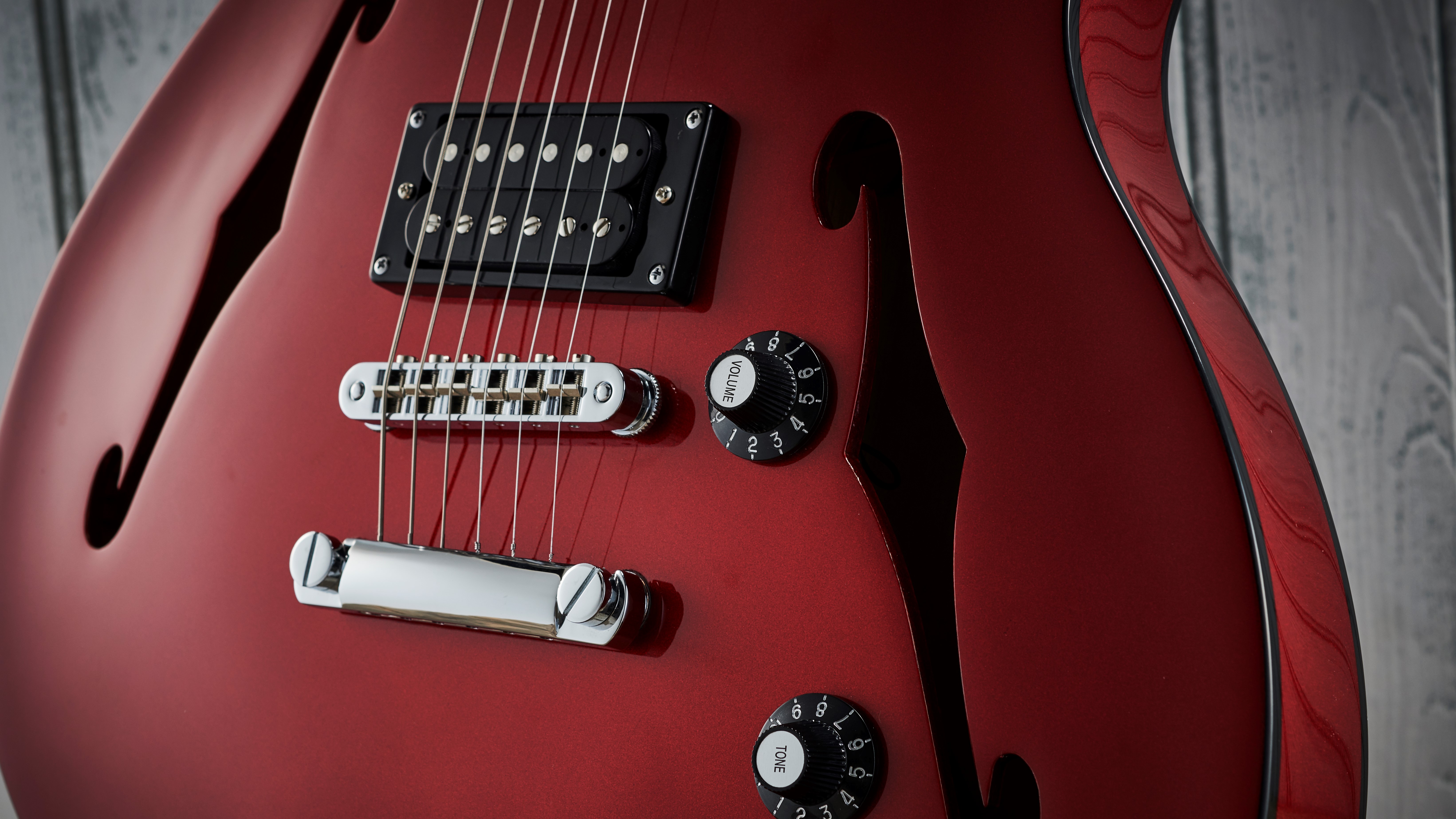
These models of guitars don't sound all that different than one another, if we're being honest.
The Bullet range – and more specifically the Stratocasters and Telecasters – offers up tones in the traditional SSS and HSS configurations. The pickups, like we mentioned before, are described as 'Standard' Squier pickups, and while they aren't bad by any means, they could justifiably be described as a little 'uninspiring' at times. They kick out a pretty classic, thin and bright tone which is good for cutting through a mix, and no beginner player is going to find issue with them either – which, when you consider who these guitars are aimed at, isn't so much a bad thing.
It is this, for us, where the Bullet series falls short. We found that the fat, funky tones you might get from the neck pickup on a Strat or Tele either just weren't really there, or needed a lot of convincing to come out. This is partly down to the pickups, and partly down to the body being thinner and lighter than usual. With a bit of gain onboard, the pickups do come to life a little more – but there's still a little more to be desired.
The Affinity series pickups aren't high-end by any stretch of the imagination, but they definitely have a bit more life in them than the Bullet options. The Affinity pickups are ceramic, so regardless of the pickup configuration, there's a bit more low-end and more of a mid presence here that we especially enjoy. For beginners, they are infallible – and even for intermediate players, the tones are satisfying and pretty addictive. The extra tonal versatility and pickup output means that you're ready for most musical scenarios with an Affinity, too.
The Affinity series of guitars is also the cheapest Squier offering to feature a full-depth, full weight body – and the difference this makes is huge. The tones you'd expect to hear from a Strat or Tele are there in abundance, and especially when paired with some gain, life feels pretty good when playing one. For the money – still well within the 'budget' price range – we're thoroughly impressed.
Verdict: We might start sounding like a broken record, but the Affinity has to be the one we'd choose here. The sounds that the Affinity range produces are chunky and sound fairly authentic, and while they're not exactly vintage-spec or era-appropriate, they sound pretty damn good. While we don't hate the sounds which come from the Bullet series, they do sound a little bit flat in comparison to the Affinity series.
Squier Bullet vs Affinity: Final verdict
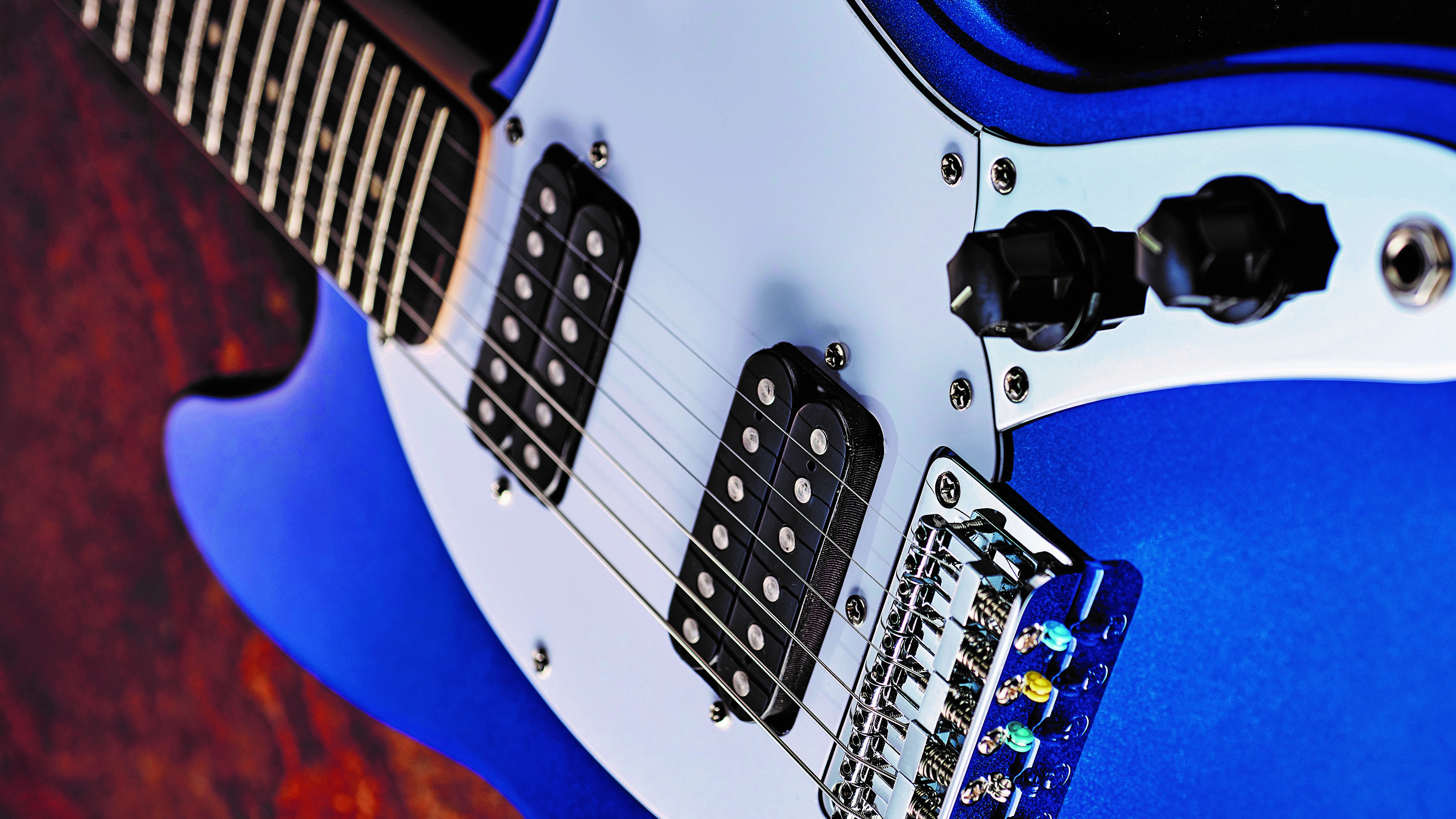
Well, we can't say we're overly surprised about the result of this comparison, to be honest. Even though both guitars offer some pretty high levels of quality considering the price bracket they fall into, the Affinity series is the winner here. Yes, Affinity guitars cost more – but as a result you get upgrades and features which are well worth the extra outlay. Things like a full-depth, full-weight body don't seem obviously valuable at first, but after comparing the two options, it's clear to see where the extra cost comes from.
With both series' being made in the same country – and most likely the same factory – they're neck and neck when it comes to build quality and the level of finish. The parts used, however, do differ – and this is what seems to make all the difference.
The parts used, however, do differ – and this is what seems to make all the difference.
If you've specifically had your eye on a Squier Bullet, or it's all you can afford, you won't be buying a bad guitar by any means. They're still well-put-together, and the lighter, thinner body feels great to play, particularly if you're in the market for a great beginner electric guitar or a killer guitar for kids – but if you've got some room in the budget and are willing to spend it, then the Affinity series is the place you should look.
Within the Affinity series, you've got a huge amount of choice when it comes to the model of guitar you want to buy. There's numerous Strats with various pickup configurations, Telecasters in Limited Edition finishes, and even a sweet offset option in the Affinity Jazzmaster.
So yes, the Affinity series is better – but the Bullet series is pretty close behind.
James is a freelance writer and former Junior Deals Writer at Guitar World. Before writing, James worked as a guitar salesman at a local music store, so he knows a thing or two about matching people with their perfect instruments. James also has experience working in other areas of the music trade, having briefly worked for online music distributor, RouteNote. James is a guitarist, bassist and drummer and has also toured the UK and Europe with his old band Hypophora.
“It combines unique aesthetics with modern playability and impressive tone, creating a Firebird unlike any I’ve had the pleasure of playing before”: Gibson Firebird Platypus review
“This would make for the perfect first guitar for any style of player whether they’re trying to imitate John Mayer or John Petrucci”: Mooer MSC10 Pro review
